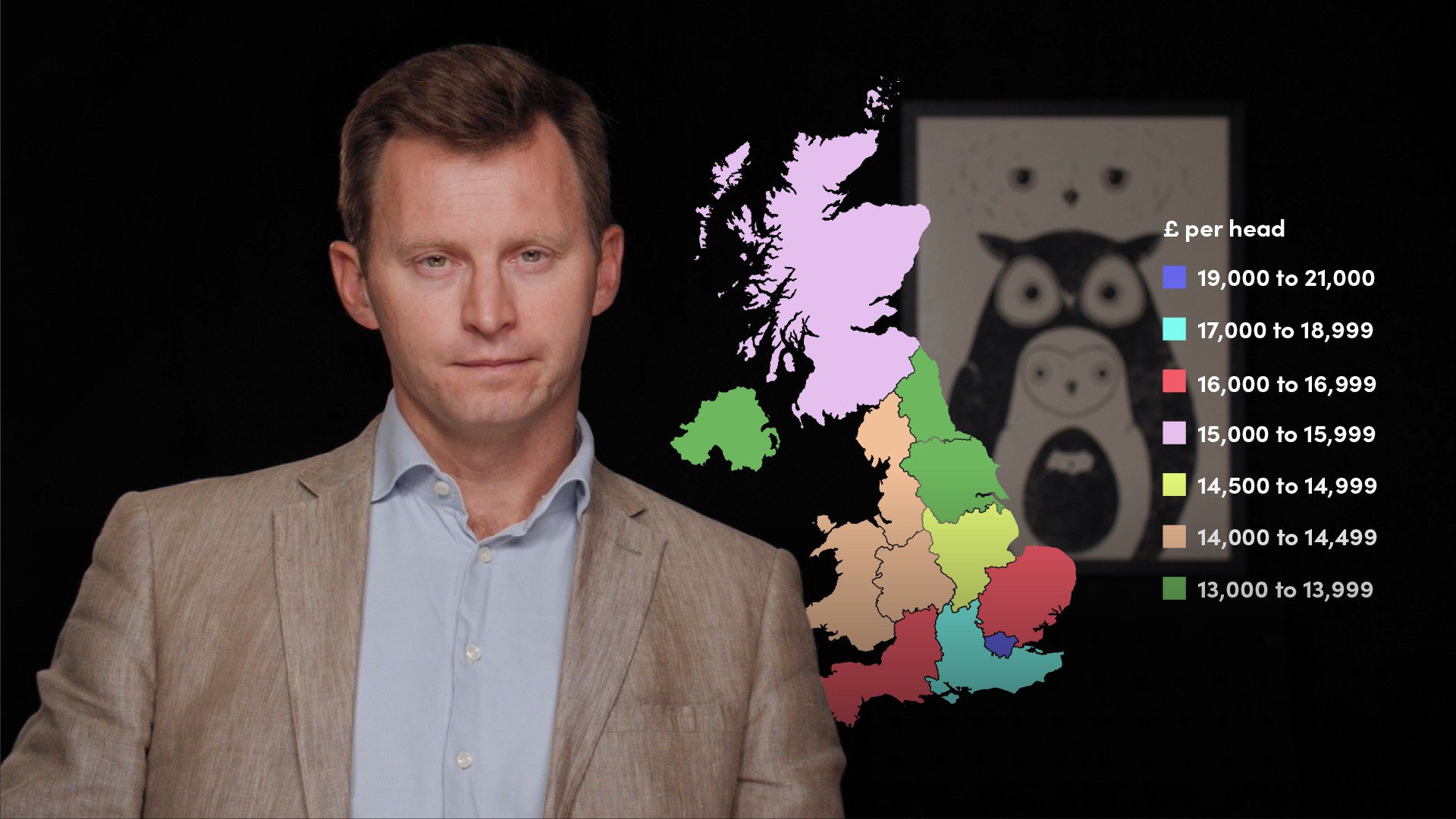
UK Regional Inequality

Adrian Pabst
Deputy Director: National Institute of Economic & Social Research
The purpose of this video is to show how unequal the UK is as a whole, being one of the most economically unbalanced countries out of the OECD’s 38 advanced economies. We will also see what this actually means in practice when it comes to the likes of income, education, health and life expectancy.

The purpose of this video is to show how unequal the UK is as a whole, being one of the most economically unbalanced countries out of the OECD’s 38 advanced economies. We will also see what this actually means in practice when it comes to the likes of income, education, health and life expectancy.
Subscribe to watch
Access this and all of the content on our platform by signing up for a 7-day free trial.

UK Regional Inequality
6 mins 43 secs
Key learning objectives:
Outline spatial inequalities in the United Kingdom
Identify the effects spatial inequalities have on the general public
Overview:
The United Kingdom is one of the most unequal countries among the world’s advanced economies, with deep disparities of wealth and power between and within the four nations. The only other EU OECD nation more unequal than the UK is Slovakia. The effects of inequalities between and within the nations have significant impacts on income, wealth, education, health and life expectancy.
Subscribe to watch
Access this and all of the content on our platform by signing up for a 7-day free trial.
How Unequal is the United Kingdom?
If we compare like-for-like across the OECD’s 38 advanced economies and using over 20 different measures of interregional inequality, the UK is the most unbalanced and unequal country across the largest range of indicators, including disposable income.
Besides disposable income, UK spatial disparities also extend to productivity differentials, which are as high as those for the whole of the Eurozone combined.
What are the Implications of Regional Inequality in the United Kingdom?
There is evidence to show that half the UK population currently lives in areas in which productivity and prosperity levels are no better than the poorer parts of former East Germany outside Berlin.
Interregional inequality is not simply confined to economic outcomes but also extends to other dimensions including, income, wealth, health and life expectancy.
There are patterns of spatial disparities with high productivity cities clustered in a limited number of regions in the south of the country, with towns closest to those high productivity cities benefitting the most.
Subscribe to watch
Access this and all of the content on our platform by signing up for a 7-day free trial.

Adrian Pabst
There are no available Videos from "Adrian Pabst"


























